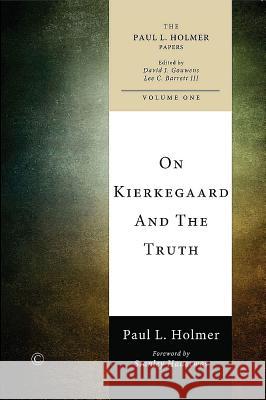On Kierkegaard and the Truth » książka
On Kierkegaard and the Truth
ISBN-13: 9780227680049 / Angielski / Miękka / 2012 / 342 str.
Paul L. Holmer (1916-2004) was one of the most significant American students of Kierkegaard of his generation. Although written in the 1950s and 1960s, Holmer's theological and philosophical engagement with Kierkegaard challenges much contemporary scholarly discussion. Unlike many, Holmer refuses reductionist readings that tie Kierkegaard to any particular "school." He likewise criticizes biographical readings of Kierkegaard, much in vogue recently, seeing Kierkegaard rather as an indirect communicator aiming at his reader's own ethical and religious capacities. Holmer also rejects popular existentialist readings of Kierkegaard, seeing him as an analyzer of concepts, while at the same time denying that he is a "crypto-analyst." In his important reading of Kierkegaard on "truth," Holmer pits Kierkegaard against those who see "truth" empirically, idealistically, or relativistically. His carefully textured account of Kierkegaard's conceptual grammar of "truth" in ethical and religious contexts addresses immediately current discussions of truth, meaning, reference, and realism versus antirealism, relativism, and hermeneutics. It will be of great interest to all interested in Kierkegaard and his importance for contemporary theology and philosophy.











